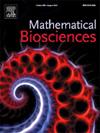癌症适应性治疗周期的设计和稳定性:确定性和随机模型
IF 1.8
4区 数学
Q2 BIOLOGY
引用次数: 0
摘要
适应性治疗是一种很有前途的癌症治疗模式,利用药物敏感细胞和耐药细胞之间的竞争来延缓耐药性的进化。先前的研究表明,在确定性模型中,循环给药可以使肿瘤成分恢复到初始值。然而,设计这种循环的条件和方法值得进一步研究。我们提出了在两个众所周知的确定性框架(Lotka-Volterra和调整复制因子动力学)中构建此类周期的生物学动机条件,并提供了使用两种药物和无药物时期构建周期的算法。此外,我们分析了这些周期的稳定性,这是其临床适用性的重要考虑因素。我们推测,只要平均处理是稳定的,循环就是稳定的,反之,当平均处理也是不稳定的,循环就是不稳定的。我们进一步研究了这两种模型的随机对应,以解释有限细胞群和真实肿瘤固有的随机性。我们的研究结果表明,随机环境中循环行为的破坏(参见Dua等人(2021)和Park和Newton(2023))不是由随机性本身引起的,而是由作为示例的相应确定性周期的不稳定性引起的。相反,我们证明了稳定的确定性周期会产生稳定的循环行为,尽管随机波动,突出稳定性在适应性治疗中的重要性。我们说明了稳定的确定性循环如何在随机模型中避免大量的循环处理的破坏。这些发现建立了一个连贯的框架,将确定性周期稳定性与随机稳健性联系起来,为临床弹性适应性癌症治疗的设计提供了理论支持。本文章由计算机程序翻译,如有差异,请以英文原文为准。
On the design and stability of cancer adaptive therapy cycles: Deterministic and stochastic models
Adaptive therapy is a promising paradigm for cancer treatment exploiting competition between drug-sensitive and drug-resistant cells to delay evolution of drug resistance. Previous studies demonstrated that cyclic drug administration can restore tumor composition to its initial value in deterministic models. However, conditions and methods for designing such cycles deserve better investigation. We present biologically motivated conditions to construct such cycles in two well-known deterministic frameworks, Lotka–Volterra and adjusted replicator dynamics, and provide algorithms for building cycles using two drugs and a period with no drugs. Moreover, we analyze stability of these cycles, an essential consideration for their clinical applicability. We conjecture that a cycle is stable whenever the averaged treatment is stable, conversely it is unstable when the averaged treatment is also unstable. We further investigate stochastic counterparts of both models to account for the finite cell population and randomness inherent to real tumors. Our results reveal that the breakdown of cyclic behavior in stochastic settings, see Dua et al. (2021) and Park and Newton (2023), is not caused by stochasticity per se, but by instability of the corresponding deterministic cycles used as examples. In contrast, we demonstrate that stable deterministic cycles give rise to stable cyclic behavior despite stochastic fluctuations, highlighting the importance of stability in adaptive therapy. We illustrate how stable deterministic cycles avoid for large times the breakdown of cyclic treatments in stochastic models. These findings establish a coherent framework linking deterministic cycle stability to stochastic robustness, offering theoretical support for the design of clinically resilient adaptive cancer therapies.
求助全文
通过发布文献求助,成功后即可免费获取论文全文。
去求助
来源期刊

Mathematical Biosciences
生物-生物学
CiteScore
7.50
自引率
2.30%
发文量
67
审稿时长
18 days
期刊介绍:
Mathematical Biosciences publishes work providing new concepts or new understanding of biological systems using mathematical models, or methodological articles likely to find application to multiple biological systems. Papers are expected to present a major research finding of broad significance for the biological sciences, or mathematical biology. Mathematical Biosciences welcomes original research articles, letters, reviews and perspectives.
 求助内容:
求助内容: 应助结果提醒方式:
应助结果提醒方式:


